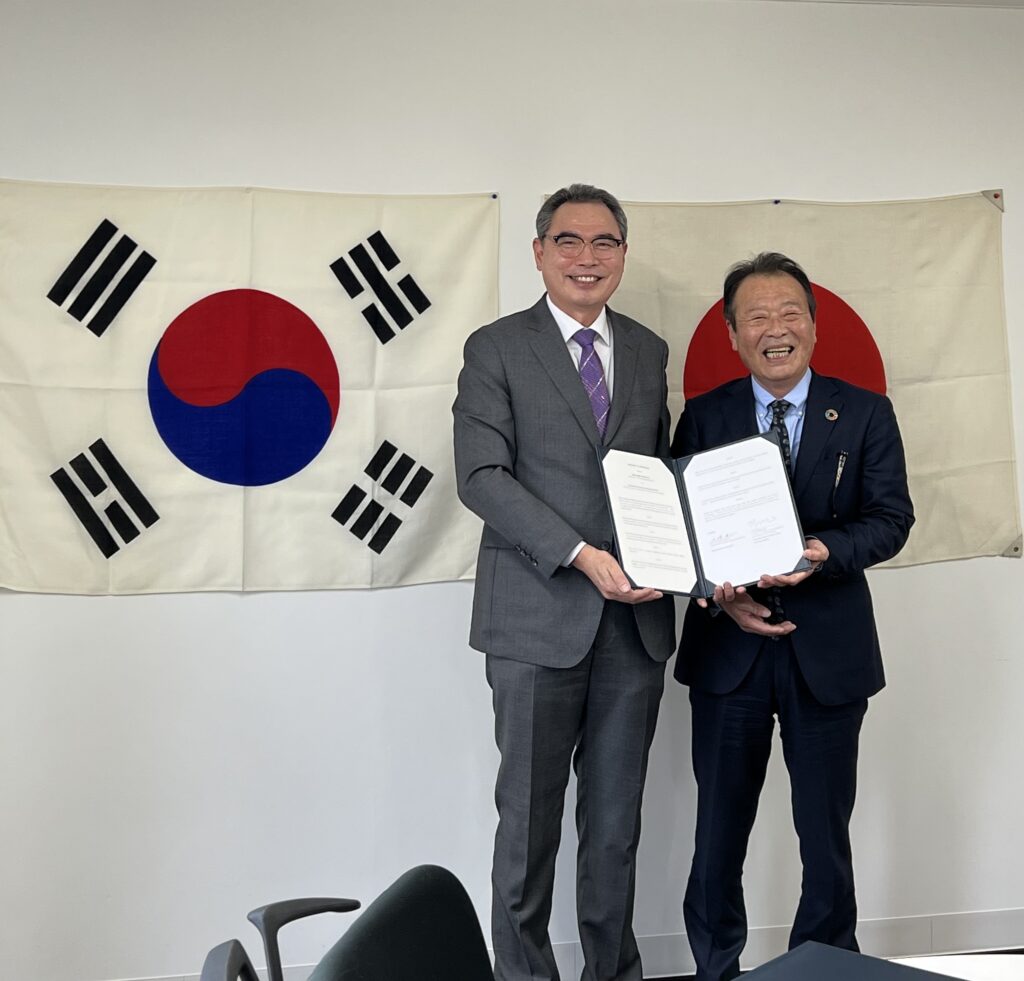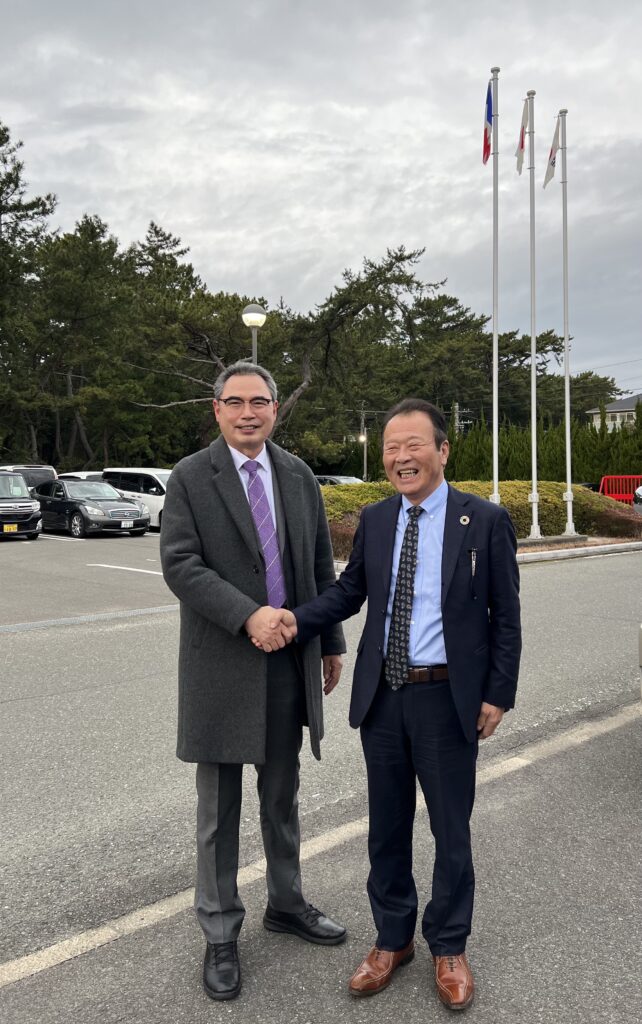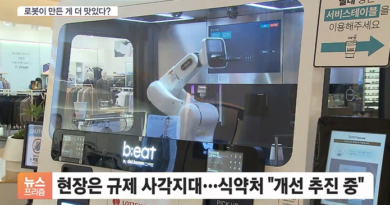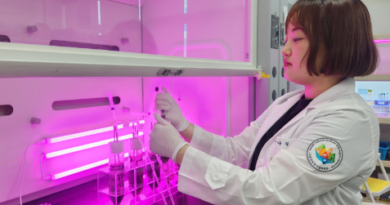International Beauty Industry Trade Association (IBITA) signed a global business agreement (MoU) with Japan’s Cosmetics Center(JCC), raising expectations for stable business with Japan
Expectations for stable Japanese business to sign a business agreement with Japan Cosmetics Center (JCC) and IBITA (International Beauty Industry Trade Association), a high-trust society that complies with the Taegeukgi and the Japanese flag.

On February 17 (Friday), Yoon Housing, chairman of the International Beauty Industry Trade Association, signed a business agreement with Japan Cosmetics Center (JCC) Chairman YAMASAKI Shinji (hereinafter referred to as Yamasaki) to support two companies, including members of each cooperative group, and strengthen mutual trade and economic cooperation.
The JCC Japan Cosmetics Center is a government cooperative organization that is responsible for import and export customs clearance in Japan, consisting of 130 member companies including cosmetics manufacturing, distribution and raw material companies, and 30 universities and researchers.
“Korea’s IBITA and Japan’s JCC agreed to cooperate not only in cosmetics beauty but also in various fields by providing information on regional economic development, trade, investment policy, technology transfer and economic cooperation,” Yamasaki said.
“The two companies will not only recommend and introduce trade and investment opportunities to each other, but will also allow the two countries’ member companies and related parties to cooperate in various forms to promote the development of economic trade relations between JCC and IBITA,” said Yoon Housing, chairman of Korea’s IBITA.

In particular, both IBITA (International Beauty Industry Trade Association) and JCC (Japan Cosmetics Center) have vowed to serve as a bridge to establish friendly cooperation between different organizations.
From 2023, IBITA and JCC said they plan to provide convenience and related services to each other by conducting practical events by promoting exchanges between JCC and IBITA through economic and trade delegations, study groups, and other activities.
In particular, IBITA and Japan’s JCC promise to actively support each other if they organize exhibitions, workshops, seminars, high-level forums, technology exchanges, and meetings, and JCC and IBITA will cooperate and develop specific R&D projects with universities in Japan and Korea.
At the invitation to sign a three-night, four-day agreement in Fukuoka, JCC and IBITA agreed to visit herbal medicine centers to introduce new raw material production technologies, license to enter Japan, and support corporate advancement, and signed a memorandum of understanding (MoU) was signed to support this.
Editor Miso








